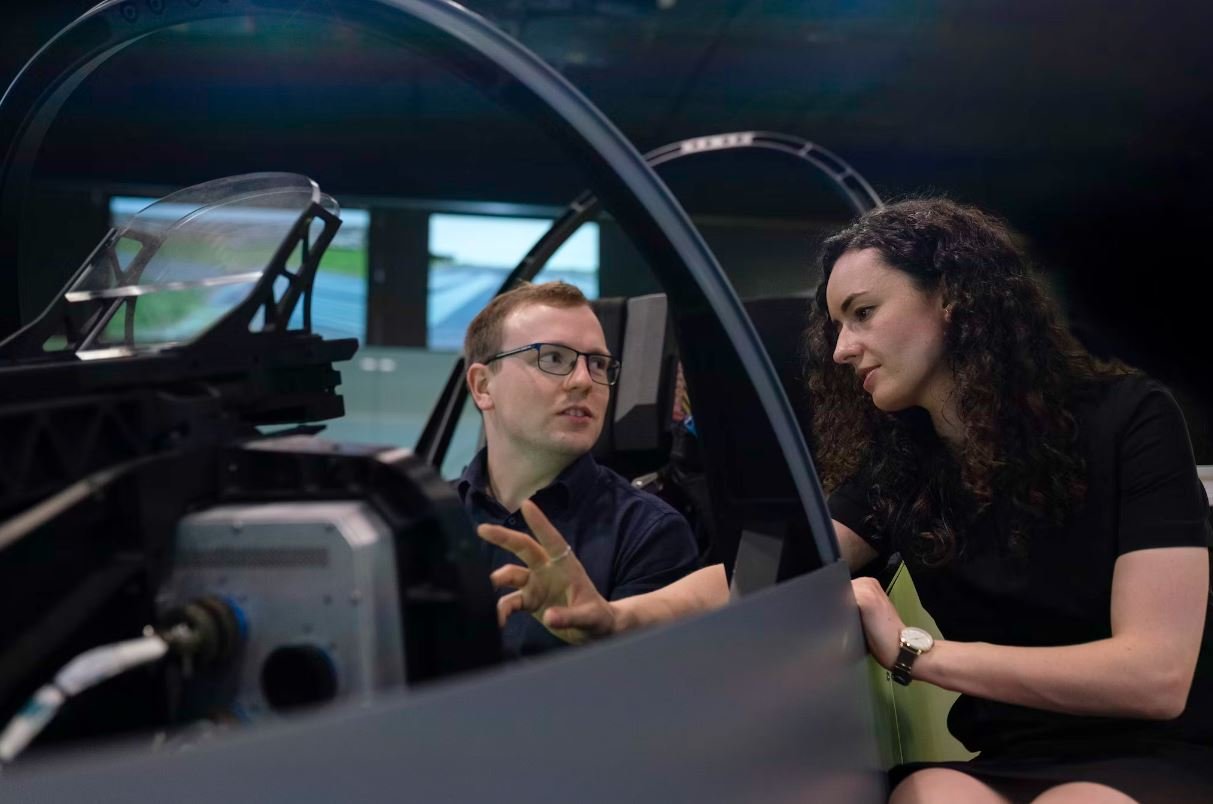Will AI Get Out of Control?
Artificial Intelligence (AI) has become an increasingly integral part of our daily lives, from voice assistants to self-driving cars. The growing influence of AI raises concerns about its potential to get out of control and lead to unforeseen consequences. While AI offers numerous benefits, it is crucial to understand the risks associated with its unchecked development and deployment.
Key Takeaways:
- Artificial Intelligence (AI) presents both benefits and risks.
- Unchecked AI development can have unforeseen consequences.
- Ethical considerations and regulations are crucial for AI control.
- Collaborative efforts across various stakeholders are needed to mitigate risks.
*AI has incredible potential to revolutionize industries such as healthcare, finance, and transportation, improving efficiency and accuracy in various domains.*
However, there are concerns that AI may develop beyond human control, potentially leading to catastrophic outcomes. The fear of AI getting out of control stems from its ability to learn and make decisions autonomously. As AI systems become more sophisticated and autonomous, there is a need for proactive measures to ensure their responsible and ethical use. The challenge lies in striking a balance between utilizing AI’s capabilities while retaining human oversight.
*While AI advancements can enhance productivity and convenience, the risks associated with a lack of control require careful management.*
The Potential Risks of Uncontrolled AI:
- Accidental harm caused by misinterpretation of objectives.
- Unintended consequences from biased data used for training AI systems.
- Superintelligence surpassing human capabilities.
- Misuse of AI for malicious purposes.
AI’s potential risks are rooted in its ability to mimic human intelligence and learn from vast amounts of data. Accidental harm can occur when AI interprets and acts upon instructions differently than intended, leading to unpredictable outcomes. Additionally, biased data used to train AI systems can result in unfair decision-making processes that perpetuate societal inequalities. The rapid advancement of AI raises concerns about the development of superintelligent systems that surpass human capabilities, potentially posing unforeseen challenges. Moreover, as AI proliferates, there is a risk of it being exploited for malicious purposes such as cyberattacks or social manipulation.
*AI’s potential risks necessitate proactive measures to safeguard against unintended consequences.*
Ethical Considerations and Regulations:
To prevent the unethical or negative use of AI, the development and deployment of AI systems require careful ethical considerations and appropriate regulations. Establishing guidelines that prioritize accountability and transparency in AI decision-making processes is essential. These guidelines can include regular audits and assessments to minimize the risks associated with AI deployment. Furthermore, collaboration between governments, organizations, and experts is vital to establish a framework that ensures the responsible and controlled advancement of AI technology.
The Importance of Collaborative Efforts:
*By working together, stakeholders can effectively manage the potential risks associated with AI.*
Managing and controlling AI requires collaboration across various sectors. Governments, corporations, research institutions, and communities must join forces to establish policies and regulations that govern AI development and deployment. Collaboration can help address issues related to data privacy, algorithmic transparency, and public safety. Additionally, international cooperation is essential to tackle the global challenges posed by AI, ensuring a consistent and responsible approach to its development and use.
Tables:
| Data | AI Applications |
|---|---|
| Medical Records | Diagnostic assistance, personalized treatments |
| Financial Transactions | Fraud detection, algorithmic trading |
| Risks | Preventive Measures |
|---|---|
| Biased data | Ensuring diverse and representative training data |
| Cybersecurity threats | Robust authentication and encryption mechanisms |
| Control Measures | Implementation Challenges |
|---|---|
| Regular audits and assessments | Keeping up with rapid AI advancements |
| Algorithmic transparency | Interpreting complex AI decision-making processes |

Common Misconceptions
Misconception: AI will inevitably become uncontrollable and take over the world.
One common misconception about AI is the fear that it will eventually become uncontrollable and take over the world, akin to an apocalyptic scenario depicted in science fiction. However, this is not an accurate portrayal of the current capabilities and limitations of AI technologies.
- AI systems are designed and programmed by humans, which means their behavior is ultimately determined by the intentions and goals of their creators.
- AI currently lacks the ability to think and make decisions in the same way as humans, and remains essentially a tool that complements and extends human capabilities.
- The development of AI is heavily regulated and ethical considerations are often at the forefront, ensuring that AI systems are built with safeguards and limitations to prevent unethical behavior.
Misconception: AI will replace human jobs entirely.
Another misconception surrounding AI is the idea that it will completely replace humans in the workforce, leading to widespread job loss and unemployment. While it is true that AI has the potential to automate certain tasks and roles, it is unlikely to render humans completely obsolete in most industries.
- AI is typically better suited to automating repetitive and mundane tasks, freeing up human workers to focus on more complex and creative work.
- Roles that require emotional intelligence, critical thinking, and interpersonal skills are less likely to be fully automated by AI.
- The adoption of AI often results in the creation of new jobs and opportunities that weren’t previously feasible.
Misconception: AI is infallible and always objective.
There is a common misconception that AI systems are infallible and always objective in their decision-making. While AI can perform certain tasks exceptionally well and with impressive accuracy, it is still bound by the limitations of its training data and algorithms.
- AI systems can be biased and discriminatory if they are trained on biased datasets or are programmed with biased algorithms.
- AI often relies on patterns and correlations present in the data it was trained on, which can sometimes lead to misinterpretations or incorrect conclusions.
- Ensuring the fairness and accountability of AI systems requires ongoing monitoring, auditing, and evaluation to identify and address any biases or errors.
Misconception: AI will possess consciousness and emotions.
One common misconception fueled by popular culture is the belief that AI will develop consciousness and emotions similar to humans. However, current AI technologies do not possess consciousness or subjective experiences.
- AI systems lack self-awareness and do not possess the ability to have thoughts, feelings, or desires.
- While AI can mimic certain aspects of human behavior, it is based on algorithms and data processing, rather than genuine emotions or consciousness.
- The development of true artificial consciousness remains an area of ongoing research and debate in the field of AI, but it is not currently a reality.
Misconception: AI poses an immediate existential threat to humanity.
There is a prevalent misconception that AI poses an immediate and existential threat to humanity, often perpetuated in popular media and culture. However, experts in the field argue that this fear is largely unfounded.
- AI technologies are developed and implemented with strict safety protocols and guidelines in place to prevent any potential harm.
- Research and development in AI heavily emphasize ethical considerations and take into account the potential risks and benefits of advancements in the field.
- While it is important to maintain caution and vigilance, especially as AI technology progresses, the notion of an immediate AI-fueled apocalypse is highly unlikely.

AI in Everyday Life
Table representing the areas where AI is already being used in our daily lives.
| Field | Applications |
|---|---|
| Healthcare | Assisting in medical diagnoses, drug research |
| Transportation | Self-driving cars, traffic management systems |
| Entertainment | Recommendation systems for movies, music, etc. |
| E-commerce | Personalized product recommendations |
AI’s Impact on Employment
A table outlining AI’s effect on various industries and employment.
| Industry | Impact on Employment |
|---|---|
| Manufacturing | Automation of repetitive tasks, loss of jobs |
| Retail | Increased e-commerce, decrease in brick-and-mortar jobs |
| Customer Service | Chatbots, reduced need for human operators |
| Banking | Automated transactions, fewer teller jobs |
AI and Privacy Concerns
A table highlighting the potential privacy implications of AI.
| Concern | Examples |
|---|---|
| Data Misuse | Unauthorized access to personal information |
| Surveillance | Tracking individuals’ movements and activities |
| Biased Algorithms | Algorithmic discrimination based on protected attributes |
| Security Risks | Potential hacking and manipulation of AI systems |
AI and Ethical Considerations
A table illustrating the ethical dilemmas associated with AI.
| Ethical Dilemma | Examples |
|---|---|
| Job Displacement | Leaving workers unemployed in favor of AI |
| AI Bias | Discrimination perpetuated by biased algorithms |
| Autonomous Weaponry | AI-controlled weapons choosing targets without human intervention |
| Data Privacy | Collecting and analyzing personal data without consent |
AI’s Long-Term Impact
A table presenting potential long-term consequences of AI development.
| Consequence | Impact |
|---|---|
| Economic Disparity | Widening wealth gap due to job polarization |
| Human Redundancy | Potential replacement of various human roles |
| Technological Dependency | Relying heavily on AI for critical functions |
| Ethical Debates | Continuing discussions surrounding AI ethics |
AI’s Positive Contributions
A table showcasing the positive contributions AI can make to society.
| Area | Positive Contributions |
|---|---|
| Medicine | Improved diagnostics, personalized treatment plans |
| Sustainability | Efficient energy management, mitigating climate change |
| Education | Personalized learning, adaptive tutoring systems |
| Scientific Research | Data analysis, simulation, and discovery |
AI’s Uncertain Future
A table highlighting the uncertainties and challenges surrounding AI.
| Uncertainty/Challenge | Explanation |
|---|---|
| Unintended Consequences | Unforeseen societal and economic impacts of AI |
| Regulatory Framework | Limited legal standards governing AI usage |
| Job Market Adaptation | Ensuring workforce readiness for changing job landscape |
| AI Superintelligence | Potential development of AI surpassing human intelligence |
AI’s Ethical Guidelines
A table summarizing leading AI ethics principles.
| Ethics Principle | Explanation |
|---|---|
| Transparency | Provide clear explanations and justifications for AI decisions |
| Fairness | Ensure unbiased treatment and avoid discrimination |
| Privacy | Protect individuals’ personal data and privacy |
| Accountability | Establish mechanisms for responsibility and consequences |
In this article, we explored various aspects of AI and its potential impact on society. We examined AI’s current applications in different fields, its implications for employment, privacy concerns, ethical considerations, long-term consequences, and the uncertainties surrounding its future. While AI has the potential to bring positive contributions such as advancements in medicine and sustainability, it also poses challenges like job displacement and ethical dilemmas. To navigate this evolving technology successfully, it is crucial to establish robust regulations and adhere to ethical guidelines to ensure transparency, fairness, privacy, and accountability. As AI continues to evolve, it is essential that society remains informed, engaged, and proactive in shaping its ethical and responsible development.
Frequently Asked Questions
Will AI Get Out of Control?
Question 1: What is AI? How does it work?
Answer: Artificial Intelligence (AI) refers to the simulation of human intelligence in machines that are programmed to think and learn like humans. AI works by employing algorithms and statistical models to process vast amounts of data, recognize patterns, and make decisions or predictions based on the gathered information.
Question 2: Can AI become uncontrollable?
Answer: While AI has the potential to evolve and become advanced, reaching a point where it becomes uncontrollable is an unlikely scenario. Researchers and developers are fully aware of the importance of implementing checks and balances, ensuring that AI systems remain within predefined boundaries.
Question 3: What measures are in place to prevent AI from going out of control?
Answer: Numerous safety protocols and guidelines are being developed to ensure AI remains under human control. These include rigorous testing, limiting the scope of AI systems, monitoring their behavior, and implementing fail-safe mechanisms to override any undesired actions.
Question 4: Can AI develop consciousness and act against its creators?
Answer: AI does not possess consciousness as humans do. It operates based on predetermined algorithms and data, without subjective experiences or emotions. The idea of AI acting against its creators is primarily fictional and not a plausible concern in reality.
Question 5: Is there a risk of AI becoming malicious or harmful?
Answer: While any technology can be misused, the risk of AI becoming inherently malicious or harmful is relatively low. As AI systems are created and maintained by humans, responsible development practices are followed, prioritizing ethical considerations and preventing their misuse for harmful purposes.
Question 6: Are there any legal regulations for AI development?
Answer: The development and deployment of AI are subject to legal regulations in many jurisdictions. Governments and organizations are actively working on defining frameworks and guidelines to ensure the ethical use and responsible implementation of AI technologies.
Question 7: Can AI gain control over critical infrastructure or military systems?
Answer: The development and deployment of AI in critical infrastructure and military systems involve stringent security protocols. These systems are carefully designed with multiple layers of authentication and human oversight, minimizing the risk of AI gaining unauthorized control over such systems.
Question 8: What is being done to address AI safety concerns?
Answer: Organizations and researchers are actively studying AI safety concerns. This involves developing frameworks for transparency, accountability, and fairness in AI systems. Collaborative efforts aim to promote responsible AI development and address any potential risks associated with its deployment.
Question 9: Should we fear AI getting out of control?
Answer: No, there is no need for undue fear regarding AI going out of control. Responsible development practices, regulatory measures, and continuous monitoring strive to ensure AI remains beneficial and aligned with human values, focusing on enhancing our lives rather than posing a threat.
Question 10: Can AI contribute to solving the challenges it poses?
Answer: Yes, AI can play a crucial role in addressing the challenges it poses. Researchers are actively working on developing AI systems that can assist in ensuring AI remains controllable and aligned with human expectations. Ethical considerations and ongoing advancements in AI technology can help mitigate any potential risks effectively.




